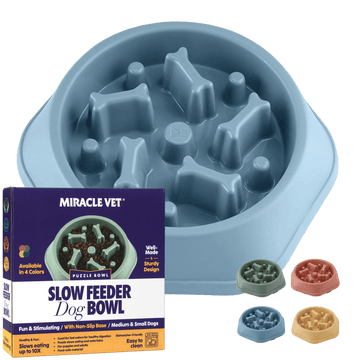
Introduction to Hyperthyroidism in Cats
Hyperthyroidism is a disease frequently seen in adult and senior cats. The thyroid gland in the cat's neck will often swell resulting in more hormones being produced.
This is commonly caused by a benign tumor in the thyroid gland, causing it to grow. It is not known exactly what causes this but both environmental factors and diet have been linked to hyperthyroidism.
Symptoms
At first, you may not notice any symptoms in your cat. As the thyroid keeps producing excess hormones the more symptoms and more severity of symptoms will rear their head.
Most noticeably there will be weight loss, this is often not paired with the loss of appetite but an increased appetite and thirst.
Because of this, you may also see more frequent urination. Also, an untreated cat will not have as healthy of a coat. Their coat may look greasy and/or matted.
At first, you may not notice any symptoms in your cat. As the thyroid keeps producing excess hormones the more symptoms and more severity of symptoms will rear their head.
Most noticeably there will be weight loss, this is often not paired with the loss of appetite but an increased appetite and thirst.
Because of this, you may also see more frequent urination. Also, an untreated cat will not have as healthy of a coat. Their coat may look greasy and/or matted.
For more information, please watch this presentation by Jean Hofve.
Hyperthyroidism Treatment in Cats
There are several treatment options for a cat with hyperthyroidism.
Your vet should discuss with you all the options before recommending what is right for your cat. It may also be a combination of more than one treatment option.
One common way to treat hyperthyroidism is surgery.
It is not a complicated surgery to remove the thyroid glands but there are some cats who may not be able to undergo it.
Older cats or cats with other organ conditions can present difficulties due to the general anesthesia. The cat will have to be put under while the gland is being removed.
Medication is another route your vet may recommend. Medication does not cure the problem but can suppress the hormones, thereby reducing symptoms.
An older cat whose owner may not want him/her to undergo surgery can use medication to give the cat a happier, healthier rest of their life.
Radioactive iodine therapy is a shot that is absorbed into the bloodstream. The radioactive iodine can get rid of the excess thyroid tissue and cure the problem.
This treatment is not available everywhere and can be costly. The injection has a high rate of permanent success but sometimes it can work almost too well and cause the thyroid gland to not produce as many hormones as it should.
When this happens you may need to give your cat extra hormones for the rest of their lives. Radioactive iodine therapy is considered one of the best options if the treatment is available to you.
Recommend diet
Having a proper nutrition plan is another way that may be able to cure the problem without surgery or injections.
Some cats can overcome hyperthyroidism by simply changing their diet. Particularly an iodine restricted diet may be all the cat needs.
This may be the best option for an older or sick pet that may not be able to withstand surgery.
There is some debate amongst veterinarians about the long-term health of the cat on an iodine restricted diet as it may cause other health issues.
Due to weight loss being one of the first and most obvious symptoms, you will want to keep the cat’s weight up as best you can.
Supplementing is one great option to help with this issue, especially if you have a cat who is a picky eater. Adding Miracle Vet weight gainer is a great way to keep your cat healthy while going through and after surgery.
You can also increase his or her amount of food and frequency of feedings. If you are giving your cat two meals a day upping that to three meals a day may be beneficial.
Fortunately, most cats with hyperthyroidism can get along just fine. Whether the cat needs surgery or not there is a good chance that the cat can still live a long, healthy life.
In older cats and cats that have other issues with their organs, the prognosis is not as good. Sometimes there can be complications with other organs and also your vet might advise against surgery for an older or sick cat.
As with most conditions, the sooner you find out about the issue and start treatment the better off your cat’s chances of beating it are. Do not ignore any symptoms and regular check-ups with your vet are always recommended.









